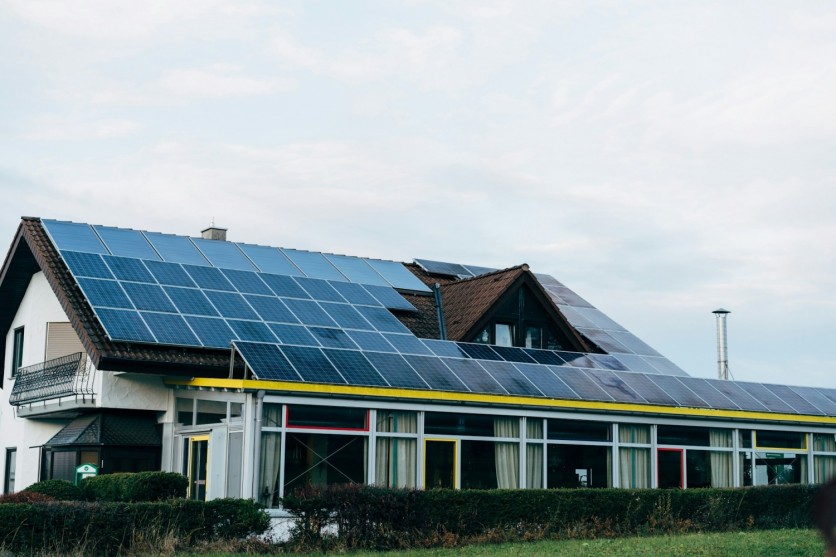
As fuel prices continue to surge and concerns about climate change grow more pressing, the appeal of installing solar panels has never been stronger. In today's economic landscape, where households are looking for ways to cut costs while also reducing their carbon footprint, solar energy offers an attractive solution. Beyond the environmental benefits, the potential for long-term savings on energy bills has made solar panels a popular choice for homeowners across the globe.
However, as with any major investment, looking beyond the immediate benefits is essential. The decision to install solar panels should also consider the broader implications, particularly in terms of cyber safety. While solar panels might seem like a straightforward piece of hardware, they are increasingly becoming integrated into our digital lives—and with that integration comes certain risks.
The Growing Appeal of Solar Panels
The adoption of solar panels is on the rise, driven by a combination of environmental responsibility and financial incentives. As fossil fuel costs climb, many are turning to renewable energy sources like solar to mitigate the impact on their wallets. Government subsidies, tax credits, and the decreasing cost of solar technology have further fueled this trend, making it an accessible option for a wide range of consumers.
In addition to the economic advantages, solar panels offer a tangible way for individuals to contribute to a more sustainable future. As more people become aware of the importance of reducing their carbon footprint, the shift towards solar energy has become a symbol of personal commitment to environmental stewardship.
However, as the market for solar panels expands, so does the need to choose the right source of renewable energy. Not all solar panels are created equal, and the choice of provider, technology, and installation process can have long-term implications for both efficiency and safety.
Choosing the Right Solar Solution
When selecting solar panels, it's crucial to consider not just the cost and efficiency but also the potential vulnerabilities that come with the technology. As solar panels become more connected to the grid and integrated into smart home systems, they represent a new frontier for cyber threats.
The interconnected nature of modern solar systems means they are often linked to apps and online platforms that allow users to monitor energy production, adjust settings, and even sell excess energy back to the grid. While this connectivity offers convenience and greater control, it also opens the door to cyberattacks.
Choosing a reputable solar provider with a proven track record in both physical and digital security is essential. It's not just about finding the most affordable or efficient panels—it's about ensuring that the system you install is secure from potential cyber threats.
The Cybersecurity Risks of Solar Panels
While it might seem far-fetched to think of solar panels as targets for hackers, the reality is that any connected device can be compromised. In 2019, a cybersecurity firm discovered vulnerabilities in solar inverters—devices that convert the energy generated by solar panels into usable electricity. These vulnerabilities could allow hackers to take control of the inverters, potentially shutting down the entire solar energy system or even manipulating the flow of energy to cause physical damage.
These examples serve as a reminder that as we embrace new technologies, we must also remain vigilant about the security risks they pose. Solar panels, like any other connected device, require robust cybersecurity measures to protect them from potential threats.
Staying Safe in the Age of Solar Energy
As solar panels become an increasingly common feature of our homes, it's important to approach their installation and use with an awareness of the potential risks. When considering solar energy, prioritize providers that emphasize cybersecurity and offer systems with built-in protections against hacking.
Additionally, it's essential to stay informed about the latest cybersecurity best practices. This includes regularly updating passwords, using multi-factor authentication for any connected apps, and keeping software up to date. While these steps may seem small, they can go a long way in protecting your investment and ensuring that your solar energy system remains secure.
In conclusion, solar panels offer a promising way to reduce energy costs and contribute to a greener future. However, as with any technology, it's important to be aware of the potential cybersecurity risks. By choosing a reliable provider and staying vigilant about online safety, you can enjoy the benefits of solar energy without compromising on security.
Conclusion
As you consider making the switch to solar energy, remember that safety extends beyond the physical installation. Ensure that your solar panels are protected from cyber threats by choosing a trusted provider and staying informed about the best practices in cybersecurity. Your investment in a sustainable future should also be an investment in your digital security.
ⓒ 2025 TECHTIMES.com All rights reserved. Do not reproduce without permission.





